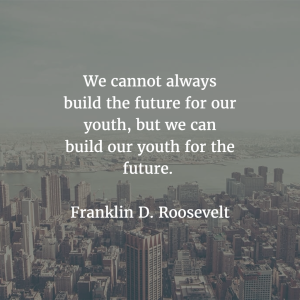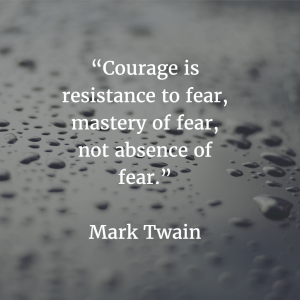Altria Student Ambassador and future Territory Sales Manager Tony Killough sat down with us to speak out about the millennial retail reps that he advocates for in field sales after holding an internship and the advice he would give them.
What characteristics do you look for in an individual who wants to work the retail space in field sales?
“Anybody that I can talk to pretty easily. Anybody that I feel like is easily engaged, self motivated, works hard, or is good in group projects, for instance. Anybody who is ‘on the ball’ especially in a group project.. there’s always that one person that’s like, ‘Okay guys we’re presenting now’ and it’s definitely nice to have that kind of person instead of everybody sitting around waiting, looking at each other.”
What is a huge red flag?
“I guess if the person looks like they’re in pain when they’re trying to talk to a group or [talking] on a one-on-one basis.. They’re trying to talk to you and they just look painful! They’re stuttering and they just don’t know what they’re doing. That is a ‘no.’ They wouldn’t fit in. I’m sure they would be a great candidate for another job, but this wouldn’t be the right job for them! Another flag is if they aren’t self motivated and if they’re always the last person to do the work on a group project. They might be involved in other things, but if it’s a consistent thing, like you can’t manage your time well, there’s something that wouldn’t work!”
Tips for Incoming Retail Reps
1. Store Managers are Human Beings
“[Store managers] are human beings, so when you go into a store, they’re going to have good and bad days. The good days are really awesome because they’re excited and they’re happy to see you and they say ‘How are my numbers? How am I doing?’ [S]ometimes there are bad days where they’ll throw you out of the store and they’ll just say ‘No I don’t even want to deal with you today. I can’t do it.’ and you’re like ‘I have to be here. I’m sorry!’ Haha there are good and bad days, but I would say that I built good relationships. There’s probably 3 or 4 that I can still remember that are just good people and were always interested in what I had to say even though I was an intern.”
2. Don’t Be Afraid to Ask for Help
“We had a mentor that [helped us] through our internship. There were problems that I encountered. The first time around I would ask my mentor, ‘In a situation like this what do you do typically?’ Not every problem is going to be [handled] the same in every store, so it’s kind of hard to blanket them, but there are some normal issues that come up, so you learn solutions from your mentor. That’s where this helpful person comes in. Then the next time they’ll expect you to remember that situation saying, ‘Hey what did we do the last time this happened?’ You kind of go from there and [through] each store a new problem is encountered. You’re expected to learn and grow from it, like anybody else would. There is a breaking point where they’re like ‘Okay. Tomorrow’s your day. You’re going to go and do it yourself!’ you’re like ‘Uh.. ? I’m not sure I’m ready for that.. But okay!’ and you go out there. [At] every store you’re calling them and saying ‘Wait.. What do I do if this happens?’ They expect that. They know that. That’s fine.”
3. Not Everyone is Like You
“You have to understand that a lot of the people can be very different from you on how they grew up, and how they currently live. They might not be as privileged as you are or they might be more privileged than you. You have to, kind of, be ready for anything. You have to be outgoing. [You need] the ability to talk to random people [and] to plan and execute well.”
4. Your Retailers are Part of Your Team
“[As] I move forward and go into my territory I’m going to try to [get to know store managers better.] I know a lot of people do that and it’s pretty helpful because they value you more than the retail rep that just comes in and does whatever in their store and then leaves. There were some stores where I made friends with the retailers and they would tell me about something small like, a restaurant or something. I would try that restaurant in-between and I would come back and say ‘hey that restaurant is really good!’ and we would kind of hit it off there. You can kind of connect it back and say, ‘yeah by the way, your store is looking great. I noticed this one thing, could we clean that up?’ Just small things like that. It definitely helps to make a connection outside of anything business related even if it’s a small thing like a restaurant. Maybe it’s a movie you talked about. Maybe it’s a weird customer that comes in at the time that you’re there. Basically anything.”
5. Share Your Insight with Other Retail Reps
“One thing that all of [the interns] struggled with was just being at the retail level. I had worked behind the counter at a pet store before, but I was a sales clerk. I wasn’t valued necessarily at a pet store, but at Altria they were always interested in my opinions and what I thought about [the intern process]. They wanted me to do it their way, but they always wanted me to keep an eye open. They said, ‘Okay did you notice anything different?’ They were kind of using us as a new set of eyes, because if they ran company the same as they did in 2000, they wouldn’t be as successful as they are in 2016.”
Like what you see? Check out Outfield CEO Austin Rolling’s insight on How Analytics are Helping Outside Sales Reps Work Smarter!






